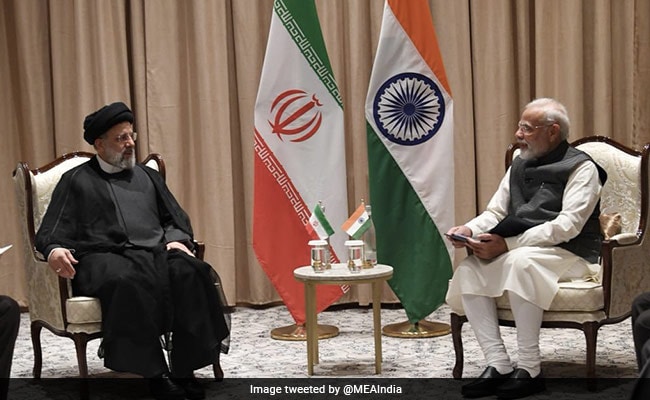Shoaibur Rahman

The Indian government has announced a one-day state mourning on Tuesday to honor the Iranian President Seyyed Ebrahim Raisi and Foreign Minister Hossein Amir-Abdollahian, who died in a helicopter crash. During the mourning period, the national flag will be flown at half-mast on all customary buildings, and all official entertainment will be suspended for the day.
The tragic incident occurred as the 63-year-old President Raisi and his entourage were on route to the northwestern city of Tabriz after a visit to an area near the Azerbaijan-Iran border on Sunday. The helicopter crashed in northwestern Iran, and the bodies of Raisi, Abdollahian, and several other officials were discovered at the crash site on Monday.
Prime Minister Narendra Modi and External Affairs Minister Dr. S. Jaishankar have conveyed their condolences, highlighting the significant contributions of Dr. Raisi and Mr. Amir-Abdollahian in enhancing India-Iran relations.
Prime Minister Narendra Modi expressed his condolences on X, saying, “Deeply saddened and shocked by the tragic demise of Dr. Seyed Ebrahim Raisi, President of the Islamic Republic of Iran. His contribution to strengthening India-Iran bilateral relationship will always be remembered. My heartfelt condolences to his family and the people of Iran. India stands with Iran in this time of sorrow.”
In recent years, India has strengthened its relationship with Iran. Let’s examine the progress of these ties during President Raisi’s tenure.
India-Iran Ties
India and Iran have long shared historical and cultural ties. Post-Cold War, India has maintained cordial relations with West Asian countries, with Iran being a key player due to its strategic location bordering Afghanistan and Pakistan. Diplomatic relations began with a friendship treaty in 1950. The Iranian Revolution in 1979 marked a new phase of engagement.
Trade and connectivity are pivotal in India-Iran relations. In 2022-23, bilateral trade reached $2.33 billion, showing a 21.77% increase since Raisi’s presidency in 2021. Both countries share concerns about Taliban extremism and Pakistan’s role in Afghanistan. Iran is seen as a stabilizing force in the Persian Gulf and a strong regional partner.
U.S. sanctions have strained relations, with India yet to resume crude oil imports from Iran. Nonetheless, India continues to engage with Iran despite potential sanctions.
Raisi’s Special Connection to India
Ebrahim Raisi, a hardline cleric from Khorasan, had a special affinity for India. Many Indian families, including some from the Parsi community, have historic ties to Khorasan. Raisi’s tenure saw increased bilateral cooperation, including a 10-year pact to develop Iran’s Chabahar Port, crucial for trade with Afghanistan and Central Asia, bypassing Pakistan.
India was among the few nations invited to Raisi’s swearing-in ceremony in 2021, with External Affairs Minister S. Jaishankar representing India. Raisi’s recent policies, like the 15-day visa-free policy for Indian tourists, underscored his commitment to strengthening ties.
His death occurs amid heightened tensions in West Asia, notably Israel’s war in Gaza. India will closely monitor developments as Iran transitions to new leadership.